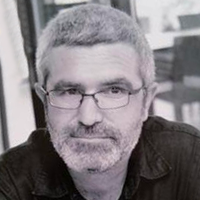Authors Columns of the Day Sport Guest Life All Authors
HÜDA PAR has stolen Erdoğan's project!
We are startled by a voice. Perhaps the real horror should be the silence.
HÜDA PAR General Chairman, who entered the Parliament with the People's Alliance, shouts from the podium: "We say that governance models such as state systems, autonomy, and federation can be discussed."
The AKP and MHP deputies, who drowned out the noise of the Saadet Party deputy's death with loudness, are silent. Naturally, while listening to Zekeriya Yapıcıoğlu, I blurt out: "HÜDA PAR has stolen Erdoğan's project!"
No, not just today. The collaborations of the past also resemble this.
The National Vision, of which Erdoğan was a part at that time, entered the October 20, 1991 elections by allying with nationalists. The Nationalist Work Party (MÇP) led by Alparslan Türkeş and the Reformist Democracy Party (IDP) led by Aykut Edibali were partners of the Welfare Party (RP). Erbakan described the alliance as "the new National Forces." The Turkish-Islamic synthesis architects, the Aydınlar Ocağı, the continuation of MTTB, the Birlik Foundation, the Business World Foundation formed by conservative businessmen, and religious communities supported the alliance, which was experiencing a similar situation to the People's Alliance in those years.
The alliance had an opponent: Istanbul Provincial Chairman Recep Tayyip Erdoğan. The reason was clear, the alliance with nationalists would alienate the party's Kurdish base. Indeed, the party organizations experienced backlash and departures.
Eventually, the Nationalist-Conservative-Islamist Alliance garnered 16.9% of the vote, yielding 62 deputies. The alliance dissolved after the election. Two names who were candidates but not elected that day were Recep Tayyip Erdoğan and Devlet Bahçeli. Only 40 of the 62 deputies were from RP. MÇP had 19, and IDP had 3 deputies. For MÇP, the result was a success as announced in their "Second Emergence from Ergenekon." For RP, however, it was not satisfactory: 40 deputies and lost Kurds in exchange for a 52-day alliance!
ERDOĞAN BETWEEN THE PKK AND THE STATE
After the election, Erdoğan aimed to fill the void. He had a committee prepare a Kurdish Report. In the report prepared on December 18, 1991, the "Kurdish issue" was defined as follows: "The problem, currently referred to as the 'Eastern' or 'Southeastern Problem,' is a 'Kurdish problem.' (...) The problem is a national one, that is, a Kurdish problem. (...) The regions currently referred to as Eastern and Southeastern are part of the geography historically called 'Kurdistan.'"
Erdoğan described the psychology accompanying the Kurdish problem as follows:
"Since 1985, the region has been caught between state terrorism on one side and PKK terrorism on the other due to PKK attacks. The local population is continuously under pressure and torture on the pretext that they support the PKK."
At that time, there was no DEM Party. HEP was conducting politics and gathering votes over the Kurdish issue. Erdoğan's Kurdish Report described HEP as follows:
"The power gained by HEP, which claims the Kurdish issue and opposes all kinds of violence, pressure, and oppression against the Kurdish people, should be evaluated from this perspective. (...) HEP's close attention to the urgent and concrete demands of the regional people earns it quite a few points."
Erdoğan's observations at that time almost completely matched HÜDAPAR's views:
"The state, with its counter-guerrillas, special teams, billions of lira spent, village guards, etc., has now understood that it cannot overcome this problem. The traditional method of force and arms used by the Kemalist State has now failed."
Nowadays, we are discussing condemnation declarations in the Parliament...
Erdoğan's Kurdish Report suggested a neutral line for the party:
"To condemn state terrorism as much as we condemn PKK terrorism. Not to appear on the state's side in the state-PKK conflict, not to adopt the state's critical style; not to use terms like 'Separatist,' 'Terrorist,' 'Secessionist' etc."
PERMISSION FOR "LEGITIMATE SEPARATISM"
Let's come to HÜDAPAR's proposal for autonomy...
At that time, the PKK was not yet proposing views such as autonomy, state system, canton, etc. It was calling for an independent Kurdish state. Erdoğan's Kurdish report, on the other hand, was in favor of an autonomous, self-governing solution with the establishment of "local parliaments":
"The formation of local parliaments and the downsizing of the central government are important steps for the establishment of full democracy in Turkey."
Erbakan thanked Erdoğan for his report. To mend the rifts, RP established the "Southeast Monitoring Committee." For the first time from the TBMM podium, Erbakan uttered the word "Kurd." Ultimately, the report provided a ground for Refah, which had allied with nationalists, to reconnect with the Kurds.
The systematic statements of HÜDAPAR now exactly match the function of Erdoğan's 1991 report. In analogy, Israel had allowed "a bit of Islamism" by paving the way for Hamas against Fatah. The AKP-MHP alliance is trying to win the votes of the Kurdish electorate by allowing HÜDAPAR, considered the "Kurdish Hamas," to practice "a bit of Kurdish nationalism".
The political planning for the upcoming period relies on two critical steps on behalf of the government. First, isolating the CHP from all its alliances and leaving it alone with the DEM Party. Second, the HDP, established through the Imralı negotiations as a solution process party, is replaced by the DEM Party, abandoning the policy of "Turkification" (Türkiyelileşme) and returning to the identity of a "regional party."
While both steps are accompanied by attacks at martyr funerals, a mission is also given to HÜDAPAR. The party, which combines Kurdish nationalism with Islamism, fills the gap between the People's Alliance and the Kurds by practicing "legitimate separatism." The secret behind the silence of the AKP and MHP to HÜDAPAR's sometimes even more radical statements than the DEM Party lies here. Bahçeli and Erdoğan, who were not elected deputies in 1991, are having HÜDAPAR write the 1991 report this time!
When we notice the silence behind the noise, we will understand that we hear not with our ears, but with our minds.


